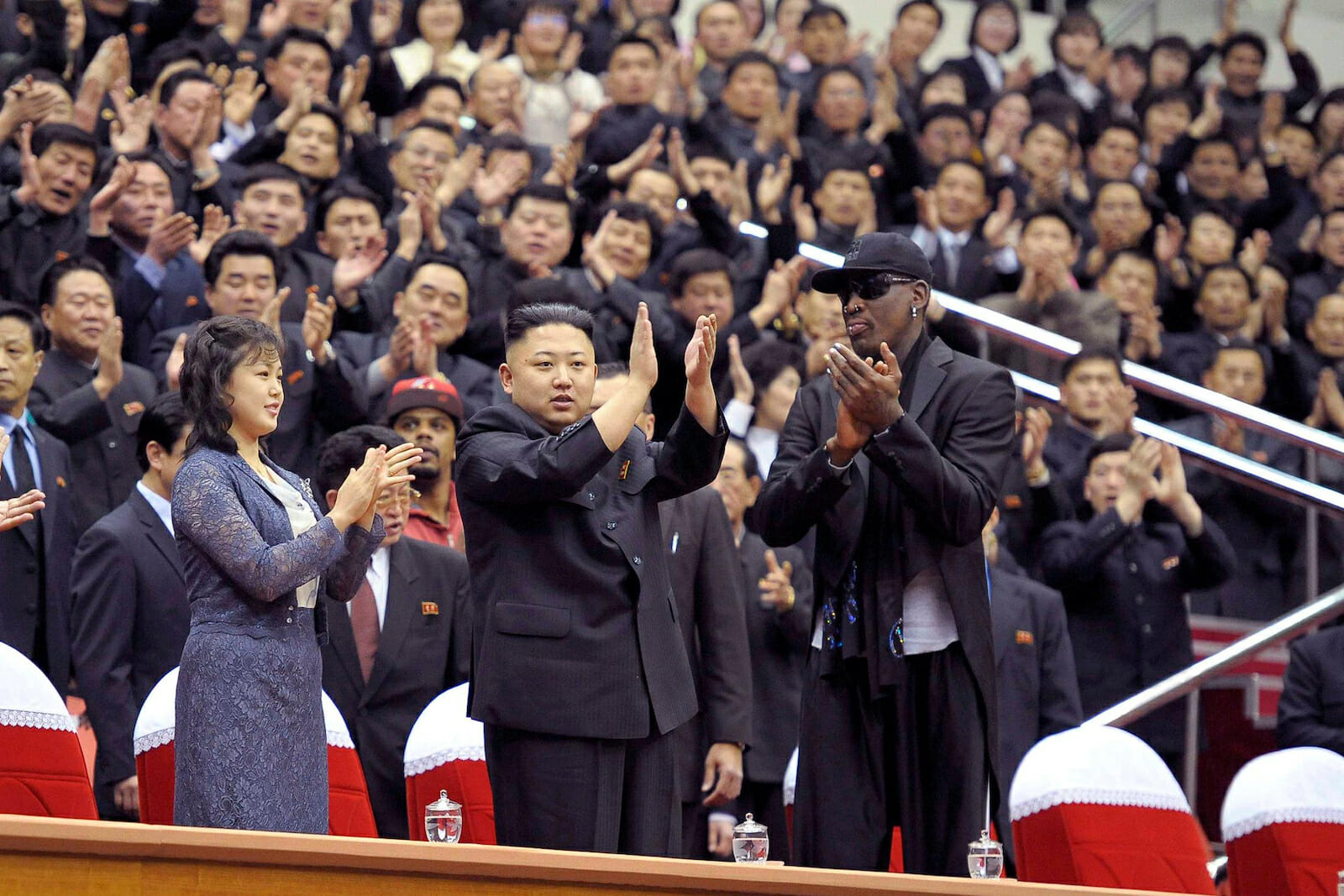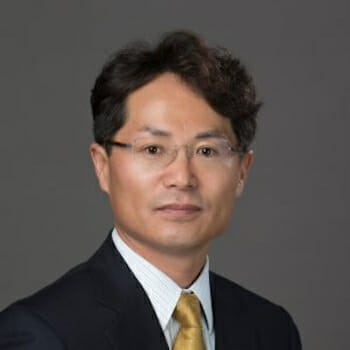
Kim Jong-Un and Basketball Diplomacy
North Korea’s young leader marks his second full year in power this month, having successfully consolidated his power in a manner that deprived the country of seasoned technocrats, relied heavily on a narrower power base, and strained the country’s critical relationship with China. If his first two years are any indication of what is to come, northeast Asia will continue to reverberate from the uncertainty and unpredictability that has become the hallmark of the Kim Dynasty. Yet, having had his knuckles rapped by China as a result of his bellicose behavior, and having a hawkish leader in Seoul to contend with, Mr. Kim should not expect business as usual going forward.
A series of recent developments in the Hermit Kingdom have confirmed that the young dictator is indeed now firmly established as the regime’s singular power. Four months before the late Kim Jung-Il officially appointed his third son as his successor, the elder Kim promoted Jang Sung-Taek, the younger Kim’s uncle, to the vice chairmanship of the powerful Central Military Committee, and general Lee Yung-Ho to the head of the military, in an effort to ensure a successful power transfer to his inexperienced son. This year, Mr. Kim purged both caretakers: General Lee in July and Mr. Jang in December, thereby demolishing the transitional power structure established by his late father.
At the same time, Mr. Kim appointed loyalist generals and party officials to key positions, with General Choi Rhong-Hea designated as his second in command. According to a South Korean report, over the past two years, a third of the military’s generals in the north were replaced.
In the process of his power consolidation, Kim removed seasoned technocrats led by his uncle Jang, in favor of loyalist military generals. For the past forty years, Mr. Jang served as a powerful technocrat who led the country’s economic affairs and diplomatic relationships. Mr. Jang was apparently the brainchild behind North Korea’s policy of turning its diplomats into drug and currency smugglers, to earn foreign exchange, while at the same time advocating China-like economic and political reforms, and establishing special economic zones. His departure thereby implies a decline in Chinese influence, although Mr. Kim was undoubtedly already less inclined to embrace his brethren in Beijing than his father was, as a result of the deterioration in bilateral relations since he took the helm.
During the power vacuum that accompanied Mr. Kim’s transition to power, Mr. Jang’s allies assumed control of important commercial entities belonging to the military, including a foreign trade firm, and even dared to oppose the fourth nuclear test conducted earlier this year. Sensing an erosion of their financial resources, and feeling threatened to be stripped of the influence of their nuclear card, angry generals turned against Mr. Jang and his faction, precipitating his downfall. Now the regime lacks experienced technocrats capable of striking a delicate balance between undertaking gradual economic reforms while maintaining a vice-like grip on power.
Consequently, Mr. Kim’s power base has been significantly reduced. Instead of roping in the regime’s longest serving and most loyal members under his leadership, young Mr. Kim has either sidelined or executed many of them, alienating significant older party functionaries and military generals. As a result, the regime has become more internally fractured now than ever before, with rapidly shifting alliances. In essence, Kim now relies primarily on his immediate family members of “baek-du” (royal) blood, and a small number of loyalist generals to control the country of 25 million people.
As part of the recent purge of Mr. Jang, Mr. Kim has eliminated many of the experienced China hands who promoted trade with China, attracted Chinese investments into the country’s SEZs, and managed relationships with key Chinese leaders. Mr. Kim proceeded with the purge despite China’s appeal not to kill his uncle, further straining the regime’s relationship with China. Fearful of additional purges, an increasing number of North Korea’s technocrats and diplomats could defect to other countries in the coming months. Economic and political relationships with China will likely either stall or deteriorate in the process.
So what are the implications for the future? It is highly unlikely that North Korea will experience anything like a mass political uprising or a coup. Instead, what seems likelier is an ongoing ‘cleansing’ of elements Mr. Kim deems a future threat. As a result, the possibility that an assassination attempt may be made against Mr. Kim cannot be ruled out, as was the case with South Korea’s military strong man Park Jung-Hee, 34 years ago. With no clear successor, the regime’s narrow power base, and deep internal fracturing, North Korea could experience chaotic internal turmoil. Should this occur, South Korea is likeliest to feel the greatest impact vis-a-vis heightened political and military tension, but China will likely feel the greatest impact in terms of enhanced refugee flows.
In the short run, with everything else that is going on inside the Hermit Kingdom, Mr. Kim is presumably not all that interested in stirring the pot externally – at least, intentionally. He will be concentrating on getting his domestic house in order, with the inevitable dose of bellicose rhetoric. Of course, with Mr. Kim, anything is possible. While the newly appointed military hawks may be eager to demonstrate their loyalty to the mercurial Mr. Kim, the potential risks of engaging in acts of military provocation are higher now than perhaps at any time in recent history.
A dangerous situation could arise early next year, as the North may use the annual US-South Korea military exercise — “Key Resolve” (scheduled for March) — as an excuse to launch military shenanigans, as in the past. South Korea’s conservative president Park Kun-Hae has repeatedly declared she would be forced to counterattack this time. So, either Mr. Kim will resist the urge to engage in inflammatory provocations, or geopolitical tensions on the Korea peninsula will escalate to a dangerous new level.
In the longer term, having gone down the road of purges, Mr. Kim has no choice now but to complete the task. If this year is any indication, we should expect more house cleaning in the months to come. Until such time as he feels the consolidation of his power is complete, we do not expect too much chest beating by Mr. Kim. His chief de facto international spokesman, Dennis Rodman, may surprise us all in using basketball diplomacy to soothe tensions on the peninsula. What a sad state of affairs that the only diplomacy occurring now between North Korea and the U.S. is being conducted by a dude with orange hair who has tattoos from head to toe and no previous experience in diplomacy. Well, given how successful previous attempts to make progress have proven to be, there would appear to be little to lose in such an unconventional approach.

